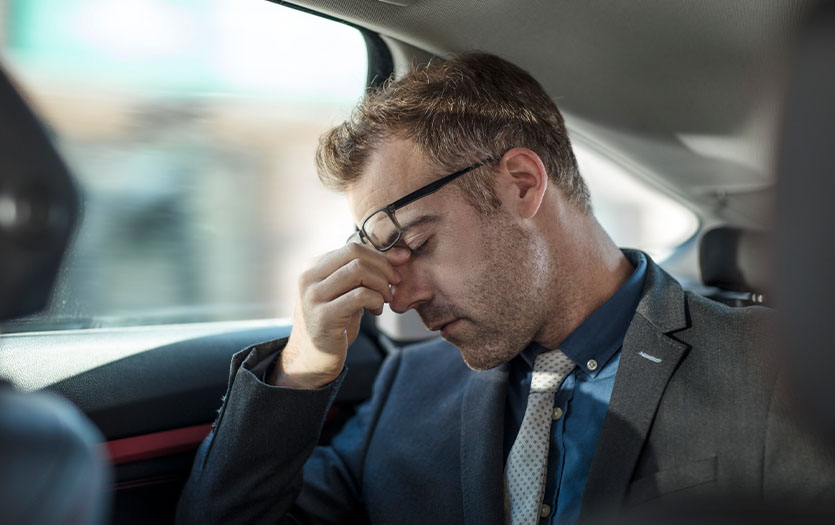
Carsickness, airsickness, seasickness—an ailment with many names, experienced on any moving object, motion sickness is defined as nausea caused by riding in a vehicle including a car, airplane, train or boat. Those who experience the uncomfortable side effect of travel, know that it can cause a lot of discomfort and put a real damper on vacations. To mitigate the symptoms of motion sickness, it helps to understand what’s happening in your body to make you feel this way.
What causes motion sickness?
Motion sickness occurs when one part of your body’s balance-sensing system (your inner ear, eyes and sensory nerves) senses that your body is moving, but the other parts don’t. For example, if you are in the cabin of a moving ship, your inner ear may sense the motion of the waves, but your eyes don’t see any movement. This conflict between the senses causes motion sickness.
You may feel sick from the motion of cars, airplanes, trains, amusement park rides, or boats/ships. Though some experience the discomfort simply sitting on a porch swing. You could also get sick from video games, flight simulators or looking through a microscope. In these cases, your eyes see motion, but your body doesn't sense it.
The symptoms of motion sickness
Motion sickness can cause:
- A general feeling of being ill
- Nausea
- Vomiting
- Headache
- Sweating
Symptoms will usually go away soon after the motion stops.
Can you avoid motion sickness?
It's best to try to prevent motion sickness altogether, as symptoms are hard to stop after they start. But for some, these tips may help you avoid the effects of motion sickness:
- Move your head as little as possible.
- Don't drink alcohol or eat a heavy meal before you travel.
- Don't eat or drink during short trips.
- Try to avoid strong odors and spicy foods.
In a car:
- Sit in the front seat.
- Don't read or watch TV or videos.
In a plane:
- Reserve a seat near the wings.
- Eat small meals of foods that are easy to digest before and during a long flight.
On a ship or boat:
- Book a cabin near the middle of a ship and near the waterline.
- Sit in the middle of a boat.
- Try to get fresh air.
- Look at a fixed point on the horizon.
Other tips:
Many people try other methods of preventing motion sickness, such as taking powdered ginger capsules or wearing acupressure wristbands. There isn't much evidence that they help, but it's safe to try them.
Treatments for motion sickness
If you are experiencing motion sickness, there are a few simple steps you can take to help alleviate your symptoms, such as:
- Eating a few dry soda crackers.
- Sipping on clear, fizzy drinks such as ginger ale.
- Getting fresh air.
- Lying down, or at least keeping your head still.
There are also medications you can take to prevent or reduce nausea and vomiting. These include:
- Scopolamine, which comes as a patch you put behind your ear.
- Medicines called antiemetics reduce nausea. Examples are ondansetron (Zofran) and prochlorperazine (Compazine).
- Certain antihistamines, such as dimenhydrinate (Dramamine®) and meclizine (Antivert®, Bonine®) can help but know that these may make you drowsy.
Some medications require a prescription and work best if taken before your departure.
If you have questions, speak with your primary care provider or pharmacist to get recommendations and explore other treatment options.
Copyrighted material adapted with permission from Healthwise, Incorporated. This information does not replace the advice of a doctor.



